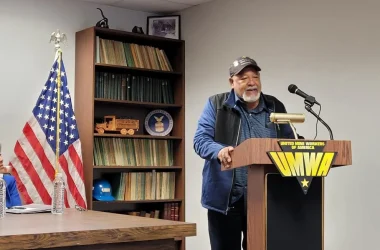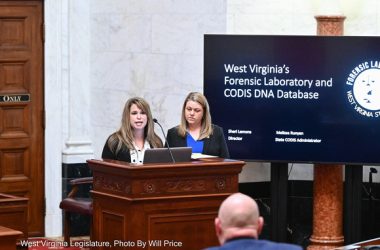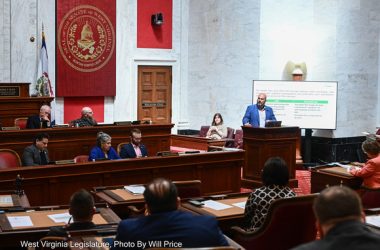From The Herald-Dispatch of Huntington:
The West Virginia legislature is struggling to devise solutions for the state’s large budget deficit, but it should stop short of the shell game it’s considering that would affect taxpayers and county school boards.
On Wednesday, the Senate approved by one vote Senate Bill 609, which in its original version simply called for reducing state spending for pre-K through 12th grade funding by $53 million. But the bill was amended prior to passage in the Senate to deepen the cut to $79.3 million, but with a caveat. The measure now will automatically increase county property tax rates across the state to the point where county school systems will be able to recover what the state is taking away, officials say.
That means the state government will be off the hook for that $79 million in its budget, which should help close the deficit. But it also means a shift in that tax burden from the state’s general revenues to property owners. Another likely result is that county school systems will feel the pressure from the public regarding this move, because the legislation also allows county school boards to reduce the property tax rate – if they think they can do without the money that the state is taking away.
Senate Bill 609 is billed as “creating additional flexibility for school systems in use of school aid funds.” However, the only evident flexibility is that county school boards will have the option of getting by with less support from the state. Cabell County Schools would lose $3.4 million in state funding under this scenario if the local Board of Education decided to opt out of the automatic tax increase. Wayne County Schools, which recently voted to shed nearly 90 jobs, would lose $1.1 million.
It seems backers of SB 609 are trying to shift responsibility for reducing state support for public education and the property tax increases to local school board members.
This legislation also poses a potential legal problem. If some county school boards opt out of the tax increase and absorb the cuts, would that leave the state school funding structure in violation of the state Constitution and outcome of the 1980s Recht decision regarding education in West Virginia? Among the results of that court decision was a modification of the state’s school aid formula to provide a more equal distribution of state funds to counties for public education. If not all county systems keep the higher tax rates, the upshot would be that not all county school systems are funded equally under this setup. That’s a concern.
The bigger concern, however, is that the legislation seems bent on steering the blame to local school boards for either allowing the property tax increase or reducing their local funds. It seems, the legislature should be making that decision – either cut funding or raise taxes within its purview – without putting the onus on local school boards. Sen. Ron Stollings, D-Boone, put it succinctly in commenting on SB 609: “I think we ought to have our big boy pants on and be able to do this ourselves without pushing it back to the counties.”
We agree. And we think the House of Delegates should just say no to this legislation in its current form.




